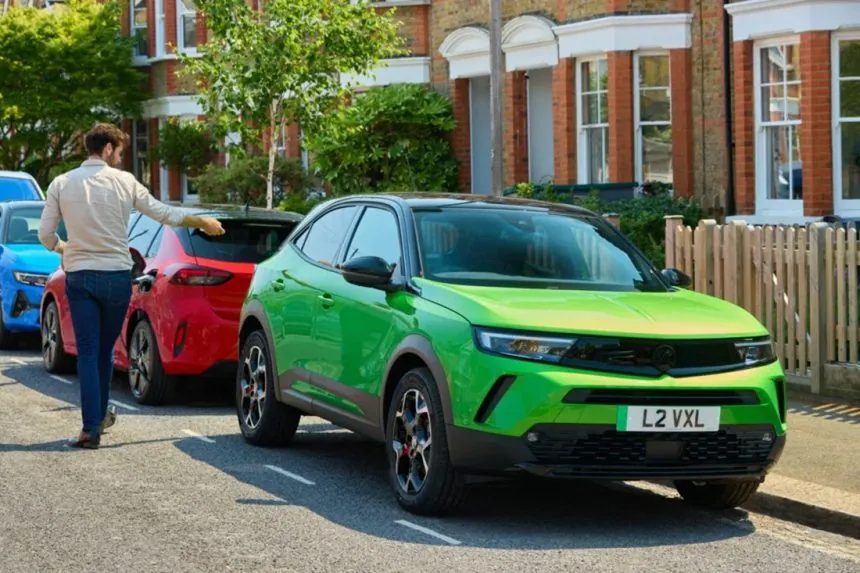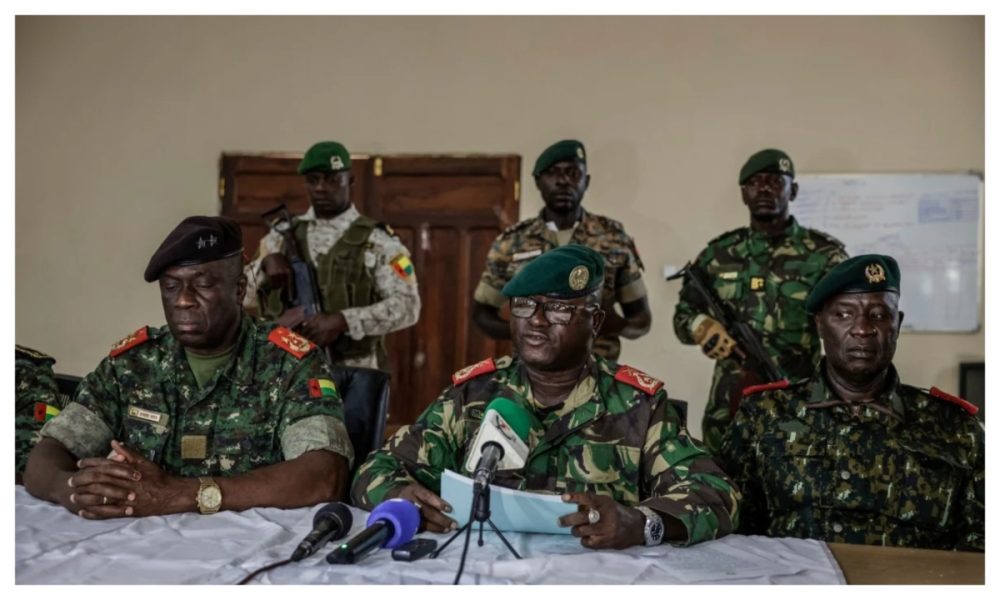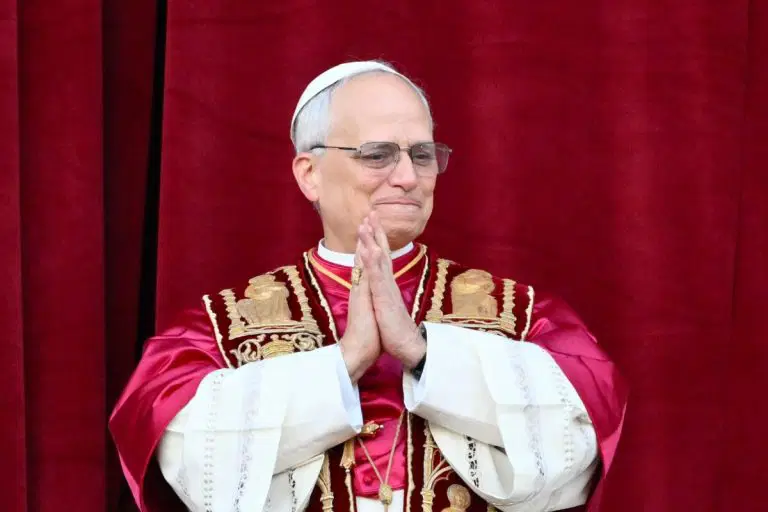Headline
FULL LIST: 13 More Cars Now Eligible For Up To £3,750 UK’s Electric Vehicle Grant

The United Kingdom (UK) government has announced 13 additional cars that qualify for its new electric vehicle grant. None of them currently qualify for the full discount available.
According to a statement on the government’s website, Transport Secretary Heidi Alexander confirmed that from August 5, buyers can get £1,500 off four Citroën models – the Citroën ë-C3, ë–C4, ë-C5 and the ë-Berlingo. The discount will be applied automatically at purchase, with no extra paperwork required.
These are the first models approved under the £650 million Electric Car Grant (ECG) scheme. More vehicles are expected to be added in the coming weeks. The ECG allows carmakers to apply a discount at the point of sale for eligible electric vehicles that meet high sustainability standards.
The scheme is funded until the 2028–2029 financial year and aims to boost EV sales, support jobs, and attract investment.
READ ALSO:UK Man Opens Up On How Wife Took Her Own Life Seven Months After Marriage
Since July 2024, over 17,300 public chargepoints have been installed in the UK — a 27% increase from last year — bringing the total to more than 82,000. The government plans to expand this to over 100,000 in the coming years, with a new chargepoint added roughly every 30 minutes.
Models from Renault, Nissan and Vauxhall are also now eligible for the £1,500 grant, although none meet the criteria for the full £3,750 discount yet as they are classified among the Band 2 cars. Nissan believes its new Leaf, to be built in Sunderland, may qualify for the higher grant, but this is not confirmed.
Eligibility Criteria
To qualify for the grant, a vehicle must:
Be an M1 passenger vehicle
Produce 0g CO₂/km at the tailpipe
Have a minimum range of 100 miles (160 km)
Include a 3-year or 60,000-mile warranty (whichever comes first)
Be powered by a battery with an 8-year or 100,000-mile warranty (whichever comes first)
READ ALSO:UK PM Starmer Urges Israel To Stop Gaza Assault
Meet minimum sustainability standards
Cars Eligible for EV grants
Nissan
Micra – Based on the Renault 5 with some design changes, sharing the same motors and batteries. Starting price after the grant is under £22,000.
Ariya – Electric SUV with a spacious interior. Nissan plans to reduce the price to qualify for the grant.
Leaf – The new model offers up to 375 miles of range. Nissan expects it may qualify for the full grant.
Renault & Alpine
Renault 5 – Compact hatchback priced under £23,000 before the grant.
Renault 4 – Larger and roomier than the Renault 5, starting at £27,000.
Renault Megane – Modern design with Google-based infotainment. Prices start at £32,500.
Renault Scenic – Family-sized EV with up to 381 miles of range. Starts at £35,495 after the grant.
Alpine A290 – Performance-focused version of the Renault 5.
READ ALSO:UK Opens Application For Chevening Scholarships
Vauxhall
Corsa Electric – Small hatchback with potential savings beyond the grant.
Combo Life Electric – Practical MPV with a spacious interior.
Astra Electric – Family car available in hatchback or estate form.
Mokka Electric – Compact SUV with distinctive styling.
Frontera Electric – Affordable SUV with a large boot.
Grandland Electric – Larger family SUV with a lower price than some competitors.
Citroën
ë-C3 – Compact EV priced from £20,600 after the grant.
ë-C3 Aircross – Larger version of the ë-C3 with more boot space.
ë-C4 – Alternative to the VW ID.3 with a simpler interior layout.
ë-C4 X – Saloon-style version of the ë-C4.
ë-C5 Aircross – Flagship SUV arriving in the UK in October 2025.
ë-Berlingo – Large electric MPV with a focus on practicality.
The government has confirmed more models from other manufacturers will be added to the scheme as they are approved.
Headline
Coup: Guinea-Bissau Junta Releases Six Held Opposition Politicians

Guinea-Bissau’s ruling junta on Tuesday released six members of the political opposition who had been detained since a coup last month.
The six freed opposition members are said to be close associates of Domingos Simoes Pereira, head of the PAIGC party that led the country to independence in 1974.
Pereira has been in custody since the coup.
In a statement by the High Military Command, the junta’s governing body, the releases are described as a sign of good faith and a step towards the return to constitutional normality and respect for international rights.
READ ALSO:Why West African Troops Overturned Benin’s Coup But Watched Others Pass
The army seized power on 26 November after ousting outgoing President Umaro Sissoco Embalo in the wake of a presidential vote.
After taking over, the military suspended the electoral process and announced it would take control of the West African country for a period of one year.
Recall that another opposition candidate, Fernando Dias, took refuge in Nigeria’s embassy, which granted him asylum, while Embalo fled the country after being briefly detained by the military at the time of the coup.
Meanwhile, Senegal’s Foreign Minister, Cheikh Niang, led a delegation to Guinea-Bissau, where he met with detained opponents and requested their release.
Headline
7 Territories Still Under Colonial Rule

Even though most nations became independent in the last century, some territories are still ruled by other nations.
Contents
1. Western Sahara
2. Guam
3. American Samoa
4. United States Virgin Islands
5. Falkland Islands / Malvinas
6. Gibraltar
7. Bermuda
Many of them remain on the United Nations list of non-self-governing territories, meaning they have not completed the process of decolonization. These places usually depend on bigger countries for laws, passports, defence, or political control.
In this article, Nigerian Tribune highlights 7 territories still under colonial rule:
READ ALSO:Nigeria Ranks World’s 102nd Happiest Nation, US, Germany Not Among 20 Top Counties
1. Western Sahara
Western Sahara remains one of the world’s biggest unresolved colonial issues. Morocco controls most of the territory, but the Polisario Front wants independence for the Sahrawi people. The UN is still trying to help both sides agree on a peaceful solution.
2. Guam
Guam is an important US territory in the Pacific, used heavily for American military operations. The US oversees its defence and foreign relations.
People living there are US citizens, but they cannot vote in presidential elections and do not have full representation in Congress.
READ ALSO:FULL LIST: US To Review Green Cards From 19 ‘Countries Of Concern’ After Washington Shooting
3. American Samoa
American Samoa has more local control than Guam, but the United States still decides immigration, defence, and foreign affairs.
Residents are considered US nationals and must apply if they want full citizenship.
4. United States Virgin Islands
The US Virgin Islands have their own legislature, but the United States makes major constitutional and political decisions. The territory depends heavily on US federal support.
5. Falkland Islands / Malvinas
The Falkland Islands remain controlled by the United Kingdom (UK), but Argentina has long disputed this claim, having been in control of the Islands for a few years before 1833.
The people living there voted strongly to stay British, yet the sovereignty dispute continues to appear in the UN.
READ ALSO:Six Countries With Highest Number Of Billionaires In 2025
6. Gibraltar
Gibraltar sits at the Southern tip of Spain. The United Kingdom controls it, but Spain insists the territory belongs to them.
Gibraltarians have repeatedly voted in favour of remaining British, but the dispute is still discussed within the UN Decolonisation Committee.
7. Bermuda
Bermuda is a British Overseas Territory situated in the North Atlantic Ocean. Although it manages most of its own internal affairs and enjoys a strong economy with modern facilities, the United Kingdom still handles its defence and represents it in global matters.
Headline
Russia-Ukraine War: Pope Leo Calls For Global Christmas Truce

Pope Leo XIV on Tuesday renewed his call for a global truce on Christmas Day, saying he felt “great sadness” after Russia “apparently rejected a request” for a pause in fighting.
Speaking to reporters at his residence in Castel Gandolfo near Rome, the Pope urged all sides involved in conflict to observe at least one day of peace.
“I am renewing my request to all people of goodwill to respect a day of peace — at least on the feast of the birth of our Saviour,” Leo said.
Recall that Russia invaded Ukraine in February 2022 and has repeatedly turned down calls for a ceasefire, arguing that any pause would give Ukraine a military advantage.
READ ALSO:Russian Strikes Kill Five In Ukraine, Cause Power Outages
“Among the things that cause me great sadness is the fact that Russia has apparently rejected a request for a truce,” the pope said.
Referring to conflicts worldwide, Leo added, “I hope they will listen and there will be 24 hours of peace in the whole world.”
The appeal came as fighting continued in eastern Ukraine. On Tuesday, Ukrainian forces withdrew from a town after heavy battles with Russian troops. Russian strikes killed three civilians and left thousands without power during winter temperatures.
READ ALSO:Trump Blasts Ukraine For ‘Zero Gratitude’ Amid Talks To Halt War
There was no indication of progress toward ending the war after separate meetings last weekend in Miami between the United States officials and negotiators from Russia and Ukraine. The conflict is nearing four years with no settlement in sight.
Earlier this month, Pope Leo met Ukrainian President Volodymyr Zelensky. When asked whether he would accept Zelensky’s invitation to visit Ukraine, the pope said, “I hope so,” while noting that it was not possible to say when such a visit could happen.
Leo also warned that efforts to secure peace without European diplomatic involvement were “unrealistic”, expressing optimism that President Donald Trump’s proposed peace plan could bring a “huge change” to the transatlantic alliance.

 News3 days ago
News3 days agoPHOTOS: New Era In Furupagha-Ebijaw As Okpururu 1 Receives Staff Of Office

 News2 days ago
News2 days agoUBTH CMD Marks 120 Days In Office, Expresses Commitment To Providing Conducive Working Environment

 News3 days ago
News3 days agoFG Declares Public Holidays For Christmas, New Year Celebrations

 News3 days ago
News3 days agoOPINION: Gumi And His Terrorists

 News2 days ago
News2 days agoFIRS Confirms NIN As Tax ID

 News2 days ago
News2 days agoOPINION: My Man Of The Season

 Metro2 days ago
Metro2 days agoFintiri Pardons Man Sentenced To Death For ‘Killing Herdsman In Self-defence’, Others

 News3 days ago
News3 days agoOPINION: Christmas And A Motherless Child

 News2 days ago
News2 days agoKWAM 1 Withdraws From Awujale Race, Ends Court Challenge

 News1 day ago
News1 day agoJUST IN: Kano Lawmaker, Sarki Aliyu Daneji, Dies Hours After Colleague’s Passing






























